- Home
- Nancy Bush
Jealousy Page 5
Jealousy Read online
Page 5
Lucy didn’t respond. She didn’t believe it, and she doubted John did either.
“What?” he demanded, seething.
He was getting mad at her. Transference. It kind of pissed her off. She didn’t want to lose her job either, and even more than that, she was hurt that she’d had to find out from Kate. Her father was autocratic and sometimes downright mean, and he was no businessman himself. If he had been, he wouldn’t be in this situation. He’d always taken too much money out of the store. She knew it, and John knew it, too, though their pleas and the company’s down-sliding profit margin hadn’t convinced him.
This day was bound to happen.
“You almost seem happy,” he accused.
“Happy? Are you serious?”
“Like you don’t care, then.”
“I care. I care a lot. If you think this hasn’t affected me, you aren’t looking. This is my family. And they haven’t treated either me, or Layla, with any respect.”
“Layla,” he said derisively.
“She’s the only one not dipping into the profits,” Lucy defended, growing angry herself.
John made a dismissive gesture with his hands and walked away. This was another of his tactics that infuriated Lucy: leave the argument if you feel you aren’t winning.
She followed him. “Layla’s going to the historical society to put Stonehenge on the list. That ought to slow things down.”
“Great idea. Then none of us will be able to sell it.”
“I never want to sell it!” Lucy declared. “If we inherited it, I would never sell it!”
“It’s a white elephant. Would suck up too much money.”
“That’s what Kate said! You tell me my father isn’t selling, then say why you should sell it. Which is it?”
“I don’t know, Lucy. What do you want me to say?”
“I don’t know! Something else!”
They’d headed up the stairs to their master bedroom, but now he snorted and strode into the bathroom, slamming the door on her. She almost went in after him because she knew this was one of his favorite ways to shut her out. But she didn’t want to. To hell with him. This wasn’t his battle, it was hers. She shouldn’t have waited for him to come home. She didn’t need him confronting her father before she did. She should have called her father immediately.
She headed back downstairs, grabbed her cell phone from her purse, and scrolled to her favorites, looking for her father’s landline. Like her mother, Lucy’s father chose his landline over his cell. He carried his cell during the day, but in the evenings, it might not be near him. She let the line ring until voice mail picked up, then tried his cell. Nothing.
To hell with it.
Checking on Evie, who’d moved from the family room couch to her bedroom, she ducked her head inside her daughter’s room. Evie was on her bed, engrossed in her iPad. Lisa, the white rabbit/dog, was seated in the little chair Evie used for the stuffed animal.
“I’m going to Grandpa’s. Grab a jacket and join me,” Lucy said.
“Do I have to?”
“You can stay with your father.”
“With John,” she corrected.
“Okay, with John. Fair warning: he’s not in the best mood.”
“Okay, I’ll come.” She tossed down her tablet and got to her feet.
Of course her car wasn’t there when Lucy automatically headed to the garage. Muttering a curse, she headed back inside and plucked the keys to John’s Acura MDX off the key rack by the back door where he’d placed them when he’d come home.
“Where’s your car?” Evie asked, following Lucy into the garage.
“I’m picking it up tomorrow.”
“Are we still going to Stonehenge for Easter?” she asked.
Lucy didn’t quite know how to answer that one. “Oh, I don’t know. I hope so.”
Did she? Yes, she wanted to keep Stonehenge in the family, but a holiday trip to the huge house with her father, brother, Kate . . . It sounded more like torture than anything else.
She drove them to her father’s house in the west hills with its view of the city. Parking was terrible on the narrow, winding street, but the curving drive in front of the house was empty, so she pulled up to the front door. She rang the bell and waited under the portico, watching desultory raindrops drip from its eaves, while Evie stayed in the car. No answer. She didn’t have a key to her father’s home, but she knew where one was hidden on the north side of the house, wedged up tight under a shingle.
But there was no reason to go in if Dad wasn’t home.
What if he just isn’t answering?
Would he be that much of a chicken?
Sadly, the answer was yes. Lucy stood on the stoop for another five minutes, pressing and repressing the button. She could hear the chimes ring inside, over and over again. A part of her wondered if something was wrong, but then she walked to the garage and looked through the decorative windows on the garage doors that made it look like a carriage house. His Mercedes was gone.
Probably with Lyle and Kate, plotting the dismantling of the company.
“Is something wrong with Grandpa?” Evie asked in concern as they were driving away.
“Nothing more than usual,” Lucy muttered.
“That’s kind of a mean thing to say.”
“Yes, it is. An inherited characteristic.”
She was too angry to protect her daughter from the truth of the family, and that truth was, her father was a son of a bitch, just like his grandfather and probably her brother, too.
* * *
Layla swept her fob across the black receiver pad and the door to Riverview Place clicked open. She hurried up the steps to the second-floor lobby and the bank of elevators that led to her fourth-floor apartment, conscious of the scents of cinnamon and dark roast coffee from the Starbucks on the first level. She loved living in this part of the city, Portland’s funky east side with its vintage clothing stores, food carts, artists’ lofts, and biking culture. Her building had been renovated and she’d been part of the decorating team. Some of her own original artwork had been used in staging the model, though mostly her use of bright colors scared designers, who lived in tones of beige, gray, and white.
Inside her unit, Layla tossed her keys onto the black lacquer half-circle table that served as a catchall for her mail, keys, purse, and other miscellany, then walked past the overstuffed tan couch with its maize afghan toward the kitchen. She’d painted the cabinets herself in a dark cherry color, and they gleamed when she switched on the overhead can lights. Layla was happy with her efforts, though the cabinets did tend to stick a bit. She hadn’t had the money to have them professionally done, and she hadn’t wanted someone else to paint them anyway.
Her bouquet of yellow daisies still looked pretty good, and she transferred them from the clear Mason jar to a deep, royal-blue vase. She set the vase on the wooden table, an antique she’d plucked from a dusty second-hand store in Sellwood, fussed with the flowers a bit, then checked for the time on her phone. She’d pushed it at the Pembroke Inn. Neil was coming over and she always felt slightly breathless when he chose to come to her place. He professed to love it, but she knew he was lying. He was too buttoned-down to truly appreciate her eclectic style and he lied a lot. At least to her.
You should have walked away from him.
She’d wanted to tell Lucy about him for months, about their plan, but hadn’t known how to. Lucy would have talked her out of her decisions. Lucy was practical and certain of her choices, whereas Layla mentally wrung her hands over monumental decisions, mainly because she seemed to always choose wrong. Lucy was the responsible one and had said the same for years, her personal badge of honor. “I’m the responsible one, and Layla’s the artist.” When the sisters were together, that was how Lucy introduced them. It always bothered Layla a little, even though there was no denying its truth. But it implied that Layla wasn’t responsible at all, and that just wasn’t true. She knew how to behave, what was right
and what was wrong, and she felt like Lucy’s offhand comments diminished her somehow.
She just seemed to come down on the wrong side of difficult decisions.
She may have made a doozy with Neil.
But it can still be okay.
Layla quickly headed into the bathroom and checked her makeup. She wore a modicum of eye and face makeup at all times, though she knew Neil really preferred more. For all the color she liked in her surroundings, she wanted precious little on her face. She squinted her eyes and grimaced at herself, examining her skin. Wan. Washed out. She needed to look her best tonight, so she added a touch of cream under her eyes to cover purplish shadows and a bit of blush to her cheekbones. Then she stood stock still, staring at herself, before carefully smoothing on soft pink lip gloss.
She fingered her earrings, feeling the hammered raised design. Her heart was racing already.
What are you trying to do? Make him want you again?
Yes, of course she was. She wanted him to want her, like he had in the beginning.
Or at least the way he pretended to.
She left the bathroom for her bedroom, which still smelled slightly musky and maybe just a bit like the weed Ian had smoked like a religion. She’d demanded that he not smoke inside, which he’d adhered to when she was around, less so when she was away.
Annoyed, she opened the sliding glass door that led to the balcony that ran along the whole east side of her apartment. There was another slider that entered the living room, rarely used because she had a chest of drawers pushed up against it with Ian’s television sitting on top, one of the many items he hadn’t bothered to take when she’d asked him to move out.
She then moved to her desk, a wooden door with ornate filigree around the perimeter set atop feet that were crossed metal bars. There were no drawers, but she had a stack of green plastic boxes from The Container Store, which held all her important papers. She opened the top box/drawer and pulled out the manila folder within, laying it flat on the desktop. Opening it, she drew out the legal-sized document from the law firm Neil used, then flipped to the back page to stare at her own distinctive scrawl and the notary stamp and signature beneath it.
Why had she signed it? Money, yes. He’d paid her well and she’d had debts that needed to be serviced. But she knew she’d buckled under Neil’s coercion. He’d been taken aback upon learning she could never bear a child herself, but then he’d come up with “the plan,” and Layla had gone along, bobbing on the tide of his decisions. It had been so nice to be the one taken care of, and Neil had a way of taking care of everything, damn near effortlessly.
That’s what money could do, she thought. It opened all kinds of doors, even ones that maybe should have remained closed.
She heard the knock on her door and quickly put the legal documents back inside the folder and into the box before hurrying to answer the door.
Neil stood in the outside hallway, water from the persistent rain coalescing in his hair. He was smiling, which froze her insides a bit because he hadn’t been happy in months.
“I brought some champagne,” he said, holding up a bottle of California sparkling wine.
She was immediately wary. He knew she rarely drank alcohol. But she smiled and accepted the bottle gracefully. She had a lot of territory to cover and didn’t need to destroy his mood before they even got started. She figured she could nurse one glass. She just needed him to go along with her.
Neil took off his raincoat and Layla added it to the wooden coatrack by her front door. She had an entry closet but used the space as a pantry in her small abode.
Neil drew a deep breath, smoothing back his dark hair with one hand as he looked around. Layla thought he may have put on a bit of weight. He was looking softer around the jawline in a way she hadn’t noticed before. He was fifteen years older than she was, his age being one of the reasons he hadn’t wanted to wait in his quest to have a son.
“What?” Layla said to the small chuckle he emitted. She was working the foil off the bottle, and, upon seeing her struggle, Neil gave her an indulgent look and took the bottle away from her, popping the cork over the sink.
“You do have champagne glasses,” he said, raising a brow.
“Yes.” Layla fetched them from the cupboard next to the sink. Two glasses. All she had room for, but all she needed. “Are we celebrating?” she queried. She’d asked him over tonight to have a serious talk, and she’d thought he’d understood that.
“Well, Naomi’s seven months pregnant. Everything’s going according to plan.” He regarded her expectantly as she handed him a glass. “Isn’t that a reason to celebrate?”
Layla held her glass in a tight fist. Her heart was beating hard. In the beginning, she’d thought she and Neil were a couple. They were a couple. She’d dreamed of marriage, even though she’d been the one who had scoffed at all the institutions and rules and folderol that went with the usual societal traditions. That, she recognized now, had been her own construct. Something made up basically because she’d never found someone she wanted to “yoke herself to”—her own words—and the Ians of the world had proved her right.
But she hadn’t really felt that way, and when Neil crossed her path, admired her cityscape painted in primary colors, paid her way more than she would ever have dreamed of asking, and then turned his attention on her ... well ... she hadn’t realized how primed she was to get out of the rut she was in. He’d been carrying a list of the artists at the gallery and asked for her specifically, she learned later. One of his first questions was if she was related to the Crissmans of Crissman & Wolfe. She’d said yes, she was Lyle Abbott Crissman III’s daughter, and he’d smiled and said he was an acquaintance of her father. This, too, should have been a red alert, but Layla had basked under the attention, not realizing how much she’d yearned for someone to look out for her until it happened. Neil asked her about her family in a general way. In that first meeting, he was charming and interested in her art, her story, her life, and Layla was immediately smitten.
Going back to her apartment and Ian had been a depressing cap to an otherwise wonderful evening. She’d determined right then that, no matter what happened with Neil, she was done with trying to work things out with Ian. He was a weight dragging her down. The only income he provided came from playing guitar in a band that played rock and roll oldies—Ian being the youngest member by twenty years—and he was pretty stingy with adding his share to their combined finances. She’d been blind to his array of faults, making excuses in her own mind for behavior she abhorred. When she asked him to leave, he hadn’t believed her. He tried to jolly her out of it, promising all manner of behavioral changes, but Layla was adamant. If nothing else, Neil had opened her eyes to Ian, who had reluctantly and extremely slowly, finally moved most of his things out.
It wasn’t long before Layla was spending all her free time with Neil. She’d initially protested having him buy her every meal, but he wouldn’t listen to her. She had a job at a local bistro to supplement the money she made from helping a friend who owned a model-home staging company and any of the proceeds from her artwork, which was scattered through a number of Portland galleries. Some months she did okay, some she barely scraped by. Her father had once reluctantly offered her a job at the store as a saleswoman, but Layla had politely declined, relieving them both.
Two weeks into her relationship with Neil, she’d stayed over at his place and they’d tried making love, but he had trouble maintaining an erection.
He was frank about the problem, which apparently had plagued him for a while. He suggested Viagra, which he’d brought with him. Layla was fine with that but very quickly understood he really didn’t have much of a sex drive. What he wanted was an heir, a son, and he was looking at her to be the mother of his child.
“You’re a Crissman. I’m a Grassley. We have the right bloodlines.”
Neil’s family had been one of the pioneers who’d helped bring steel to the Northwest. Unlike the Crissmans, his
had hung on to their wealth, and he painted a beautiful picture of a life together. It was a cruel joke. With his low sex drive and her missing parts, they were a poor bet to become parents in the usual way.
She’d sadly told him she couldn’t carry a child, and he’d countered with, “How would you feel about using a surrogate?”
The question took her by surprise. She’d really expected him to pack it in and look for someone else. She hadn’t really been looking to become a parent. She initially wasn’t even sure she wanted children. And on those rare occasions she thought, Yes, I want kids, she always thought of it in terms of courtship and marriage.
But his eagerness infected her. “How?” she asked him. “Who?”
He had it all mapped out. There were several women he knew who were possibilities. Naomi Beecham was at the top of the list. She lived in the area, had a child of her own already, and was happily married. She was a perfect candidate.
Layla initially demurred. Things were moving a little too fast for her. Having a child was life transforming. She needed time to think. Neil told her to take all the time she needed, which she learned later wasn’t in his game plan at all. He kept subtly pressuring her, all the while taking her to the symphony, the Keller Auditorium for an otherwise sold out touring Broadway play, a trip to Banff for skiing, where she sat in the lodge sipping hot cocoa and he hit the slopes, joining her afterward in front of a fire pit, a Hawaiian cruise where she swam with the dolphins, a weekend spa trip through Oregon wine country ...
She fell in love with a different life.
Neil learned of the automobile accident that had killed the other woman driver when she explained that she couldn’t carry a child. Though the no-fault accident had been blamed on bad road conditions on a dark night, the woman’s husband sued Layla anyway, blaming her entirely. Layla’s insurance company paid a settlement rather than face a costly court battle, which pissed Layla off, but she was lucky not to have to pay the legal fees herself.
Neil figured out quite quickly that Layla really wasn’t making it financially and that she was getting no support from her wealthy family. He offered her a deal: They would make a baby together, her eggs and his sperm. He would pay her for her eggs. They would sign a contract.

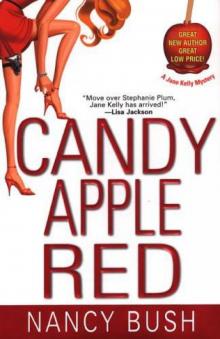 Jane Kelly 01 - Candy Apple Red
Jane Kelly 01 - Candy Apple Red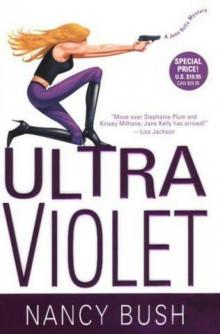 Jane Kelly 03 - Ultraviolet
Jane Kelly 03 - Ultraviolet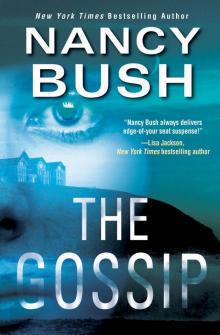 The Gossip
The Gossip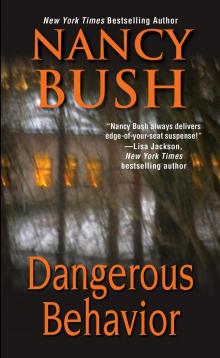 Dangerous Behavior
Dangerous Behavior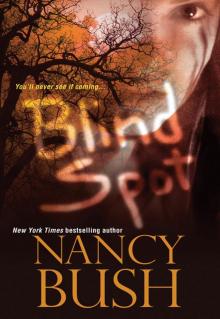 Blind Spot (2010)
Blind Spot (2010)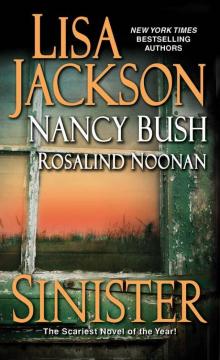 Sinister
Sinister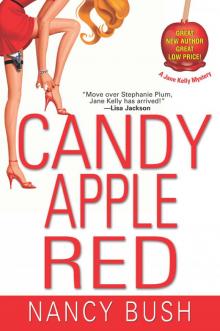 Candy Apple Red
Candy Apple Red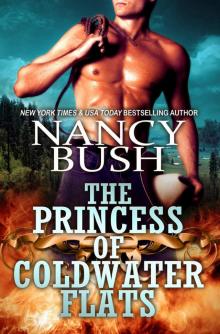 The Princess of Coldwater Flats
The Princess of Coldwater Flats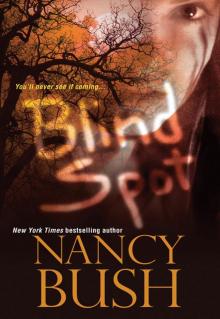 Blind Spot
Blind Spot Valentine's Child
Valentine's Child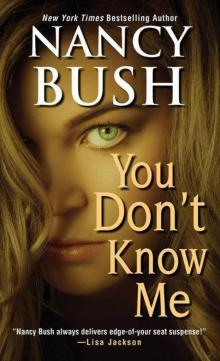 You Don't Know Me
You Don't Know Me Miracle Jones
Miracle Jones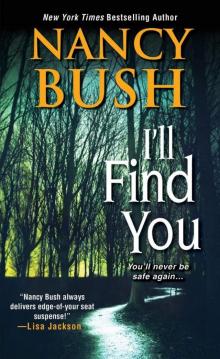 I'll Find You
I'll Find You Dear Diary
Dear Diary Jesse's Renegade (#3 of the Danner Quartet)
Jesse's Renegade (#3 of the Danner Quartet)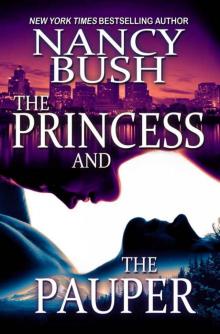 The Princess and the Pauper
The Princess and the Pauper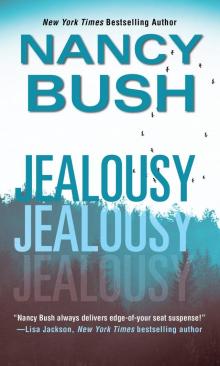 Jealousy
Jealousy Hush
Hush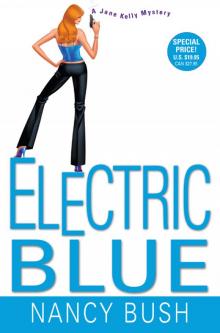 Electric Blue
Electric Blue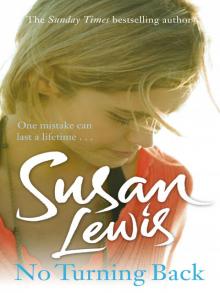 No Turning Back
No Turning Back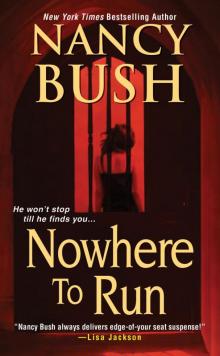 Nowhere to Run
Nowhere to Run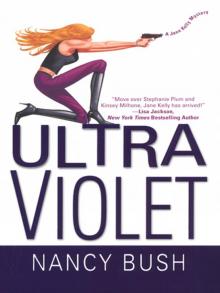 Ultraviolet
Ultraviolet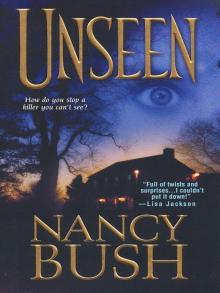 Unseen
Unseen Lady Sundown (#1 of the Danner Quartet)
Lady Sundown (#1 of the Danner Quartet)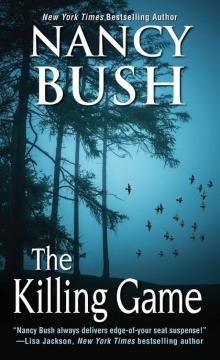 The Killing Game
The Killing Game